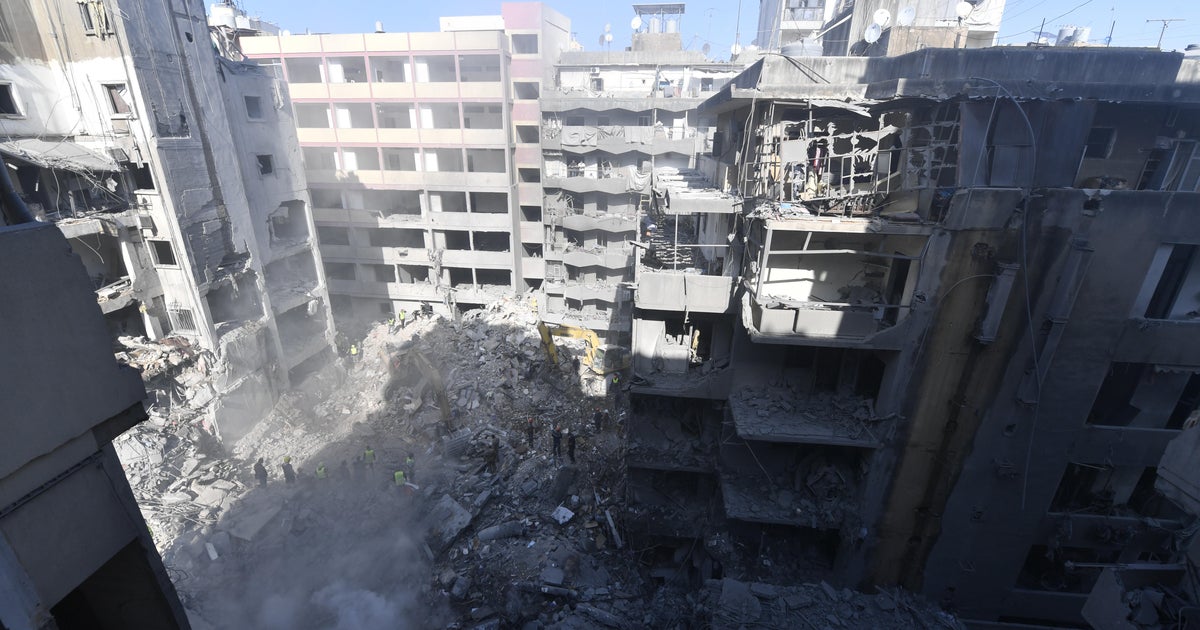Groom from horrific Afghan wedding attack says he's "lost hope"
Kabul, Afghanistan – The groom whose weekend wedding here was obliterated by a suicide bombing that killed at least 63 people says he has "lost hope." Both the bride and groom survived and, in an emotional interview with local broadcaster TOLOnews, the distraught groom said their lives were devastated within seconds.
The British Broadcasting Corporation quotes Mirwais Elmi as telling TOLOnews he remembers smiling guests whose bodies wound up being carried out.
"My family, my bride are in shock, they cannot even speak. My bride keeps fainting.
"I've lost hope. I lost my brother, I lost my friends, I lost my relatives. I will never see happiness in my life again.
"I can't go to the funerals, I feel very weak. ... I know that this won't be the last suffering for Afghans, the suffering will continue," he said.
According to the BBC, the bride's father told Afghan media 14 of his family members lost their lives in the late Saturday night attack.
There were children among the dead and the attack wounded close to 200 other people.
Fresh violence was reported Monday as a series of explosions struck the eastern city of Jalalabad. An Afghan official told CBS News' Ahmad Mukhtar at least 82 people were wounded, four of them critically and 23 of them children. There was no immediate claim of responsibility.
Details have yet to emerge on Monday's blasts in Jalalabad, the capital of Nangarhar province, where both the Taliban and the Islamic State of Iraq and Syria (ISIS) are active.
In Kabul, Afghan President Ashraf Ghani's vowed Monday to "eliminate" all ISIS safe havens as the country went through a subdued Independence Day in the wake of the wedding attack. A local ISIS affiliate has claimed responsibility for that blast.
Afghanistan was marking the 100th anniversary of its independence.
Many outraged Afghans ask whether an approaching deal between the United States and the Taliban to end nearly 18 years of fighting - America's longest war - will bring peace to long-suffering civilians. The bomber detonated his explosives in the middle of a dancing crowd, and the IS affiliate later said he had targeted a gathering of minority Shiites, whom it views as apostates deserving of death.
A sharply worded Taliban statement questioned why the U.S. failed to identify the attackers in advance.
Another Taliban statement, marking the independence day, said, "Leave Afghanistan to the Afghans."
More than anything in its nearly year-long negotiations with the U.S., the Taliban want some 20,000 U.S. and allied forces to withdraw from the country. The U.S. for its part wants Taliban assurances that Afghanistan - which hosted al-Qaeda leader Osama bin Laden before 9/11 - will not be a launching pad for global terror attacks.
The U.S. envoy in talks with the Taliban, Zalmay Khalilzad, on Sunday said the peace process should be accelerated to help Afghanistan defeat the IS affiliate. That would include intra-Afghan talks on the country's future.
But Ghani on Monday asserted that the Taliban, whom the U.S. now hopes will help to curb the IS affiliate's rise, are just as much to blame for the wedding attack. His government is openly frustrated at being sidelined from the U.S. talks with the insurgent group, which regards the Afghan government as a U.S. puppet.
The Taliban "have created the platform for terrorists" with their own brutal assaults on schools, mosques and other public places over the years, the president said.
More than 32,000 civilians in Afghanistan have been killed in the past decade, the United Nations said earlier this year. More children were killed last year - 927 - than in any other over the past decade by all actors, the U.N. said, including in operations against insurgent hideouts carried out international forces.
"We will take revenge for every civilian drop of blood," Ghani declared. "Our struggle will continue against (ISIS), we will take revenge and will root them out." He urged the international community to join those efforts.
He asserted that safe havens for militants are across the border in Pakistan, whose intelligence service has long been accused of supporting the Taliban. The ISIS affiliate's claim of the wedding attack said it was carried out by a Pakistani fighter seeking martyrdom.
Ghani called on people in Pakistan "who very much want peace" to help identify militant safe havens there.
Last month, after meeting with President Trump, Pakistani Prime Minister Imran Khan insisted he will do his best to persuade the Taliban to open negotiations with the Afghan government to resolve the war.
Mr. Trump on Sunday told reporters he doesn't want Afghanistan to be a "laboratory for terror." He was briefed on Friday on the progress of the U.S.-Taliban talks, of which few details have emerged.
Some analysts have warned that Mr. Trump's eagerness to bring at least some troops home ahead of next year's U.S. election could be weakening the U.S. stance in the negotiations as the Taliban might see little need to make significant concessions.
In a message marking Afghanistan's independence and "century of resilience," U.S. Secretary of State Mike Pompeo called the weekend wedding bombing "an attack against humanity." It was one of many international expressions of condemnation pouring in following the attack.






